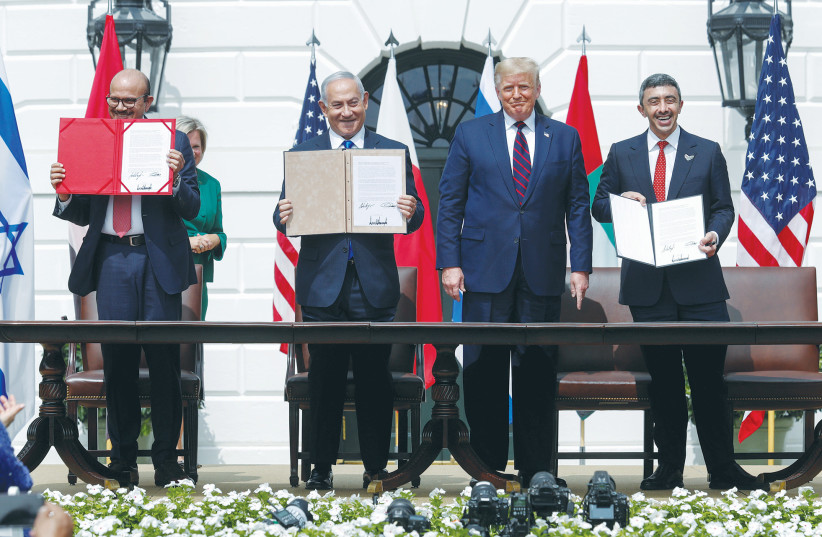Last month, in a COVID-delayed celebration of the Abraham Accords anniversary, I led a distinguished group of delegates from over a dozen nations – including Paraguay, the Czech Republic, Ecuador, Argentina, the Central African Republic and others – on a leadership mission to the UAE, Bahrain and Israel.
For the first time ever, the delegates on the mission flew from an Arab country to Israel. They met local leaders, religious leaders and business innovators and were astounded by the coexistence and tolerance.
One of our main foci was on the development and sharing of best practices and technologies. The delegation was amazed by the level of commitment to the Abraham Accords and all that this entails for the region, from an economic perspective and in relation to stability and security. This tangible dedication can be seen at a glance, as we anticipate that the regional potential of the accords exceeds more than $1 trillion over the next decade just between the UAE and Israel.
The accords are evolving from bilateral to trilateral collaborations where Israel and Gulf nations collaborate with outside partners. This trend, whereby Israel and Gulf countries team up with nations outside of the accords to provide bigger and better solutions to improving lives both within and outside of the region, is fast growing. From water to med-tech and cyber to defense and security, Israel is at the heart of such collaborations, which can assist the developing world.
For instance, areas such as food security, water-tech and agri-tech have expanded beyond the Abraham Accords partners to developing nations in Africa. Israel is a central player in sharing this know-how and taking the accords to this new level.

These collaborations, which have come about as a result of the Abraham Accords, also strengthen Israel in the multilateral arena when we get more support from international organizations. Likewise, the Gulf countries bolster their international positions, leading to success for all involved.
During our visit, the foreign minister of the Central African Republic signed historic diplomatic agreements with Bahrain, and the vice president of Paraguay officially announced the opening of an embassy in the UAE.
It doesn’t end there. I believe that much more is on the horizon. The goal now is to explore how the region’s peace partners can begin taking the Abraham Accords a step further. The door is open for many other countries to benefit from the available opportunities. We want more nations to reap the fruits of peace and share in the opportunities, prosperity and technological breakthroughs so that we utilize the accords to help other nations change lives for the better.
A few years ago, a warm and welcoming peace between Israel and Arab nations was a dream. Today, we see that mission impossible is in fact possible. This was accomplished through a renewed evaluation of the Middle East, an appreciation of the region’s incredible potential, a collective forward-thinking approach, combined with positive action and engaged and passionate peace partners.
The Abraham Accords are part of the solution to our future. They help unite, dissolve misunderstandings, solve conflicts and increase prosperity. They have had a tremendously positive impact so far, more than anyone anticipated, both symbolically and in actuality, and we want to make sure that we harness this unique potential for the future in the region and beyond.
The writer was Israel’s 17th permanent representative to the UN. He is currently chairman of World Likud. His forthcoming book, In the Lion’s Den, will be published next month and is available for preorder now.
